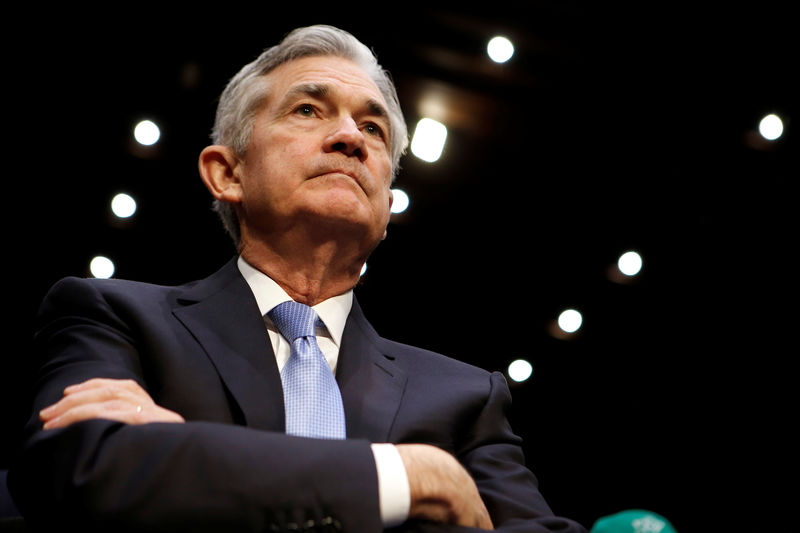(Bloomberg Opinion) -- Under the leadership of former chair Janet Yellen, the Federal Reserve successfully identified 2017’s slowdown in inflation as transitory. Now with tariffs threatening to accelerate inflation, the Fed faces the opposite question: Is faster inflation just another transitory phenomenon? If Yellen’s successor, Jerome Powell, can’t repeat her ability to distinguish between persistent and temporary inflationary forces, then expect the ride to get much bumpier, ending with either a recession or high inflation — or a combination of both.
When inflation rates fell in 2017, the Fed adopted the view that the decline was transitory due in no small part to a drop in mobile-phone service costs. This position allowed central bankers to keep pushing up their target for the federal funds rate throughout the year. That bet paid off, as inflation rates rose as expected and hence the Fed did not overtighten. It was a good call on Yellen’s part.
Now the Fed needs to make another good call. Tariffs threaten to push inflation rates higher than expected over the next year. Should the Fed view the increase as transitory or something more sinister? On the surface, the answer should be straightforward. While tariffs should be seen as a supply-side shock that drives prices higher while pushing output lower, they should result in a level shock to prices, leaving any increase in inflation rates as transitory. Hence, Powell should be able to look through tariffs and follow Yellen’s lead by holding steady with the existing plan for rate hikes.
Moreover, if Powell does conclude a tariff-induced boost to inflation is transitory, he will be primed to meet any slowdown in the economy with a more dovish policy path than currently envisioned. This was my takeaway from the minutes of the June Federal Open Market Committee meeting, in which policy makers bemoaned anecdotal evidence that firms were placing investment projects on hold as a result of the trade disputes.
Still, we should consider the possibility that Powell faces a more difficult challenge than Yellen in differentiating between transitory and persistent increases in inflation rates. Labor markets tightened through 2017, continuing that trend in 2018, and workers have grown increasingly confident in their ability to find new jobs. Private-sector quit rates rose to 2.7 percent in May, surpassing the 2.6 percent peak reached during the last cycle in September 2005.
If labor costs accelerate further (be on the lookout for the next iteration of the Employment Cost Index at the end of this month), the Fed will begin to worry that the economy has indeed moved well past full employment. This will in turn raise concern that the Phillips curve — the trade-off between unemployment and inflation — is biting harder than expected. In other words, can the Fed distinguish between inflation induced from tariffs versus that stemming from a tight economy? It may be harder for Powell to pull the correct signal from the data than it was for Yellen last year.
Powell is threading policy through a narrower needle than Yellen. My bet remains that low inflation expectations leave Powell with room to err by looking through any signs of faster inflation as temporary. This allows for some minor overshooting of the Fed’s 2 percent inflation target. In that case, the Fed remains on track to gradually boost policy rates through the rest of this year and into next as it seeks a neutral level of policy accommodation.
Don’t expect the Fed to let inflation to run wild. If the Fed miscalculates and inflation is more persistent then expected, tracking higher than 2.5 percent over the medium term, it will act to bring it back toward trend before inflation expectations become unanchored. That would be an inflation scare that risks a recessionary inducing policy response.
Of course, if the Fed surprises me by reacting to a tariff-induced inflation boost as a persistent threat because policy makers can’t distinguish its true nature, it will erroneously accelerate the pace of rate hikes, risking recession well before the emergence of any real threat to inflationary expectations. Either way, the more the economy moves past full employment, the more difficult become the challenges facing the Fed.
